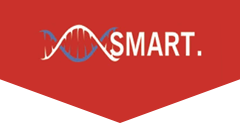Abstract
Advancing digital networking and improving technology offers an opportunity for the health sector to play a crucial role. The technology for interactive and remote patient care is now much more available and affordable. A patient with a severe disease like Alzheimer's should be checked for wellbeing. In terms of a critical patient, the major problem is to go to the hospital for the routine checkup. In regards to vital care, the main challenge is regular screening in the hospital. Based on the capabilities of IoT based technology, a frequent medically impaired patient may resolve their difficulties in consulting a doctor in a regular basis. A wearable device that allows people to get their real-time pulse rate, temperature, ECG and orientation is what this project suggested. This project led to the creation of a prototype health monitoring device. Four health sensors are part of this prototype: MAX30100, LM35, MPU6050, AD8232. All these sensors were integrated into one system using Arduino Nano. In real-time, cloud storage is continuously updated. An android application was created, where the database was accessed and the health parameters were graphically represented. This wearable health monitoring device will resolve the need for hospital admission or routine checkup in case of minor health issues. In order to clarify the functionality of the sensors used, a thorough study of the signal to respond to variability in physical and environmental behaviours was carried out.
Recommended Citation
Asaf-Ud-Doulah, Mohammed; Rahman, Md. Tauhidur; Bari, Naymul; Azad, Jobayer Ibne; Nath, Shantanu Kumar; and Hani, Sumaiya Umme
(2024)
"Design and Implementation of A Wearable Monitoring System for Alzheimer's Patient and Elders,"
American Journal of Science & Engineering (AJSE): Vol. 1:
Iss.
3, Article 4.
Available at:
https://research.smartsociety.org/ajse/vol1/iss3/4

